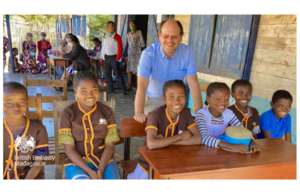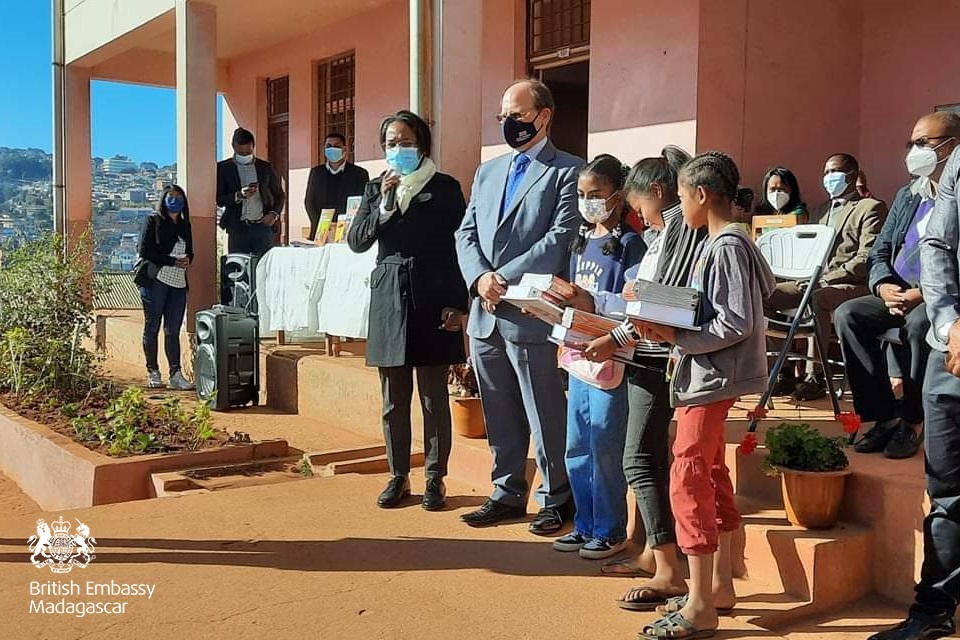Madagascar, Comoros attend UK-hosted Global Education Summit
The purpose of the Summit is to raise US$5 billion for the Global Partnership for Education, to help ensure quality education in 90 developing countries

David Ashley and pupils
The Global Education Summit in London and why investing in Girls’ Education is the best investment we can make
“Later this week, Madagascar will be one of many countries attending the Global Education Summit in London. The purpose of the Summit, which is being co-hosted by the UK and Kenya: to raise US$5 billion for the Global Partnership for Education (GPE), to help ensure quality education for boys and girls in 90 developing countries and territories, including here in Madagascar.
I had the pleasure this month to visit schools in Taolagnaro, Tsihombe and Antananarivo, including in the company of the National Education Minister, Mme Marie Michelle Sahondrarimalala. The purpose was to hear and see a little about the needs and wishes of children and teachers.
Malagasy pupils clearly strive for a better life through education. Some of those I chatted to said they like school because they want to be knowledgeable, to become a doctor or a teacher, and to have a better life in future. So what did they and their teachers want? Understandably, better school infrastructure, including classrooms; more textbooks; more access to technology; and improved teacher training.
Fortunately, these are all things, which the GPE is already helping on. As well as helping the Ministry on education sector reform, the Basic Education Support Programme, co-funded by the GPE and World Bank IDA, has so far constructed 400 classrooms, established 664 early learning centres and produced teacher training materials and improved curricula.
Indeed, since its creation in 2002, the GPE has already contributed to getting 160 million more children in developing countries into school and to the doubling of girls’ enrolment in the countries they work in.
Getting more girls into school, and keeping them there throughout secondary school, is particularly important, because traditionally it has been girls who have enjoyed less access to education. Even before the pandemic, over 52 million girls across the world were out of school, including 19 million of upper secondary school age. Covid-19 has only exacerbated the problem: adding to the many obstacles that girls can face to getting a quality education, such as poverty or child marriage.
Yet if girls don’t go to school, that is a problem not just for them but for the whole of society. Figures from across the world bears this out. Girls’ education boosts incomes and develops economies: with just one additional school year, a woman’s earnings can increase by a fifth. But it also creates healthier and safer societies. A child whose mother can read is 50% more likely to live beyond the age of 5 years, twice as likely to attend school themselves - and 50% more likely to be immunised. If every girl went to secondary school worldwide, infant mortality could be cut in half, saving three million lives every year.
So that is why the UK is contributing a further US$600 million to the GPE - our objective, shared with our G7 partners, is to help 40 million more girls worldwide to go to school by 2026. It is also why, through the Global Education Summit, the UK and Kenya hope to persuade many other developed countries to contribute to the GPE while encouraging developing countries to commit at least 20% of their total public expenditure to education. Because, if we want to change the world for the better, education – and particularly girls’ education – is a good place to start.”
HMA Mr David Ashley

David Ashley